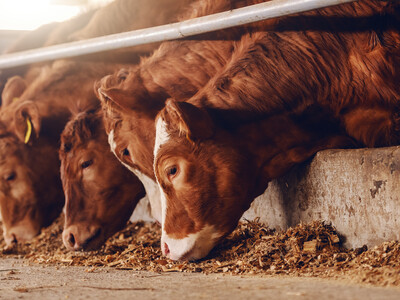House Appropriations Committee passes ag spending bill
Northwest Report June 2, 2011 The full House Appropriations Committee has approved the fiscal year 2012 Agriculture Appropriations bill, which will fund the various programs within the U.S. Department of Agriculture and related agencies. The bill totals 125.5 billion dollars, a reduction of more than seven billion from the President’s request and is a 2.7 billion dollar reduction in discretionary spending from last year’s level. The National Cattlemen’s Beef Association and the National Pork Producers Council were quick to voice their support for the spending bill because it contains language preventing the USDA from implementing its proposed regulation on livestock and poultry marketing. The so-called GIPSA rule. Chris Wall of the NPPC. Wall: “Chairman Kingston, Chairman of the House Ag Appropriations Subcommittee, when we went to him and explained what we were up against he realized that USDA, not only did they not go with the Congressional mandate that Congress gave then in the 2008 Farm Bill but the process was flawed. Because of that he saw the need to take a time out.” Amendments to the appropriations bill adopted by the full committee included one to prohibit funds for certain direct farm bill payments for applicants with incomes exceeding 250-thousand dollars. The ag spending bill must still be taken up by the full House and then sent to the Senate. ? Do you do probiotics? It’s the subject of today’s Food Forethought. Are you into probiotics? Do you know what probiotics are. Today a large percentage of consumers not only know what probiotics are, they want them in the foods they eat. Probiotics are live, active cultures and good bacteria that are usually added to dairy products. Without getting too technical, this friendly bacteria benefits your digestive health when taken in the right amounts and comes in a variety of forms. That being said, just where does the health conscious consumer get their probiotics? Yogurt is the food that first comes to mind when considering probiotics, but cottage cheese, buttermilk, and kefir, a fermented dairy drink often used in smoothies, also provide probiotics. Sauerkraut, miso, fermented soy cakes, and fermented teas are also good sources for probiotics. If your wondering how to make sure your kids get enough of probiotics, there are several different pizza franchises that provide delivery pizza fortified with a high survivability probiotic incorporated into the multi-grain crusts. Health experts no longer suggest having probiotics only occasionally, quite the contrary; when it comes to probiotics, all the time is fine. ? Lacy Gray. I’m Bob Hoff and that’s the Northwest Report on Northwest Aginfo Net. ? ? ? ? ?














